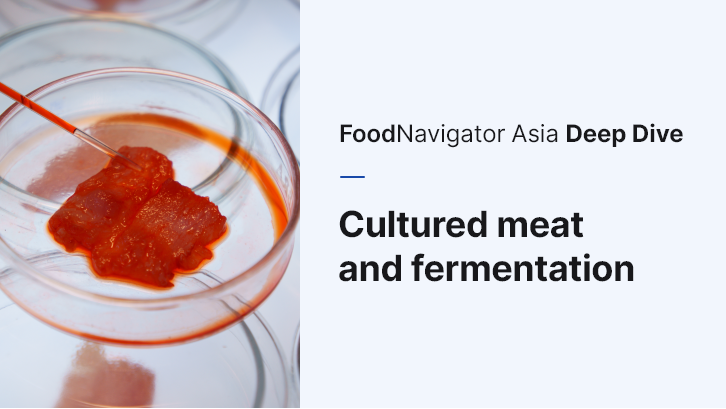GDM poses a significant global health concern, affecting 5.8% to 12.9% of pregnancies. The condition is associated with adverse obstetrical outcomes, including hypertensive disorders, Caesarean section, neonatal hypoglycaemia, and macrosomia. Furthermore, the incidence of type 2 diabetes mellitus (T2DM) among women with a history of GDM is considerably higher. In light of GDM’s prevalence and impact, identifying modifiable risk factors is crucial.
Diet, a key determinant during gestation, plays a pivotal role in regulating nutrient availability for placental and foetal growth, influencing the long-term health of new-born infants. Recent attention has focused on dietary patterns as opposed to isolated nutrients, with strong associations established between dietary patterns and the development of GDM.
Notably, a Western dietary pattern — characterised by high intake of red meat, processed meat and fast food — is linked to elevated GDM risk. On the other hand, the Mediterranean dietary pattern — which emphasises the consumption of fruits, vegetables and whole-grain cereals — is associated with lowered GDM risk.
Plant-based diets in particular have garnered attention. These diets, emphasising foods derived from plant sources over animal foods, may hold promise in preventing GDM. Although global adoption of vegetarian diets during pregnancy remains below 10%, the US-based Academy of Nutrition and Dietetics advocates their nutritional adequacy and positive outcomes for both mother and infant.
Setting the stage
Based on this, a systematic review and meta-analysis conducted by researchers at Fujian Medical University and the Fujian University of Traditional Chinese Medicine aimed to assess the impact of various plant-based dietary patterns on GDM risk and incidence in pregnant women.
The eligibility criteria for the review included women with singleton pregnancies and an absence of acute or chronic diseases affecting dietary intake. The exposure of interest was adherence to plant-based dietary patterns, characterised by higher consumption of plant-based foods and reduced intake or complete avoidance of animal-based foods. Only prospective cohort studies were included, given the susceptibility to recall bias in retrospective studies.
Additionally, the researchers employed three distinct methods to define plant-based dietary patterns: prior designated diets, plant-based dietary indices scores, and factor analysis. Vegetarian diets, including vegan and lacto-ovo vegetarian diets, were specified, while dietary indices scores were categorised as overall, healthy and unhealthy. At the same time, factor analysis was utilised to extract dietary patterns.
Diet versus diabetes
10 studies, encompassing 32,006 participants, revealed that a higher adherence to plant-based dietary patterns was associated with a reduced risk of developing GDM. Notably, the association was more pronounced when considering healthy plant-based dietary indices compared to unhealthy ones. At the same time, the association remained robust even after adjusting for BMI.
Further sub-group analyses demonstrated consistency in results across studies conducted in China and the US. The association was particularly evident when plant-based dietary patterns were defined by plant-based dietary indices. Adherence to plant-based diets during pregnancy exhibited a significant link to lower GDM risk, whereas adherence before pregnancy showed no significant association.
While sensitivity analysis was conducted to scrutinise the robustness of the findings, no single study significantly influenced meta-analysis’ overall effect size. Furthermore, several potential mechanisms explain the observed correlation. Plant-based dietary patterns, rich in vegetables, fruits, whole wheat, and soy, were found to have provided dietary fibre and polyphenols associated with lower GDM risk.
Moreover, these diets limited the consumption of red meat and ultra-processed foods, which have long been implicated in increased GDM risk. The influence extended to mitigating insulin resistance and inflammation, which are both recognised etiological characteristics of GDM.
Plants for pregnancy
The meta-analysis suggested that plant-based dietary patterns, particularly those deemed healthy, held promise in reducing the incidence of GDM. However, the researchers also noted that further exploration would be needed to elucidate the complex interaction between dietary compounds and GDM.
These include considerations of microbiota and metabonomics, which was defined in 2006 by Imperial College London Emeritus Professor Jeremy K. Nicholson as "the quantitative measurement of the dynamic multi-parametric metabolic response of living systems to patho-physiological stimuli or genetic modification".
Additionally, emphasising the quality of foods within plant-based dietary patterns is crucial for optimal outcomes, with healthy plant-based diets recommended over their unhealthy counterparts. The comprehensive analysis provided compelling evidence to support the potential protective role of plant-based dietary patterns against the development of GDM, with the findings underscoring the importance of dietary choices during pregnancy in influencing maternal health outcomes.
The researchers concluded that these findings were “significant to help medical staff to guide pregnant women to choose reasonable diets”, adding that further exploration “focusing on (the) mechanisms of plant-based diets and explicit food groups of healthy plant-based dietary patterns” were required.
Source: PLoS One
“The effects of plant-based dietary patterns on the risk of developing gestational diabetes mellitus: A systematic review and meta-analysis”
https://doi.org/10.1371/journal.pone.0291732
Authors: Yu Zhu, et al.




